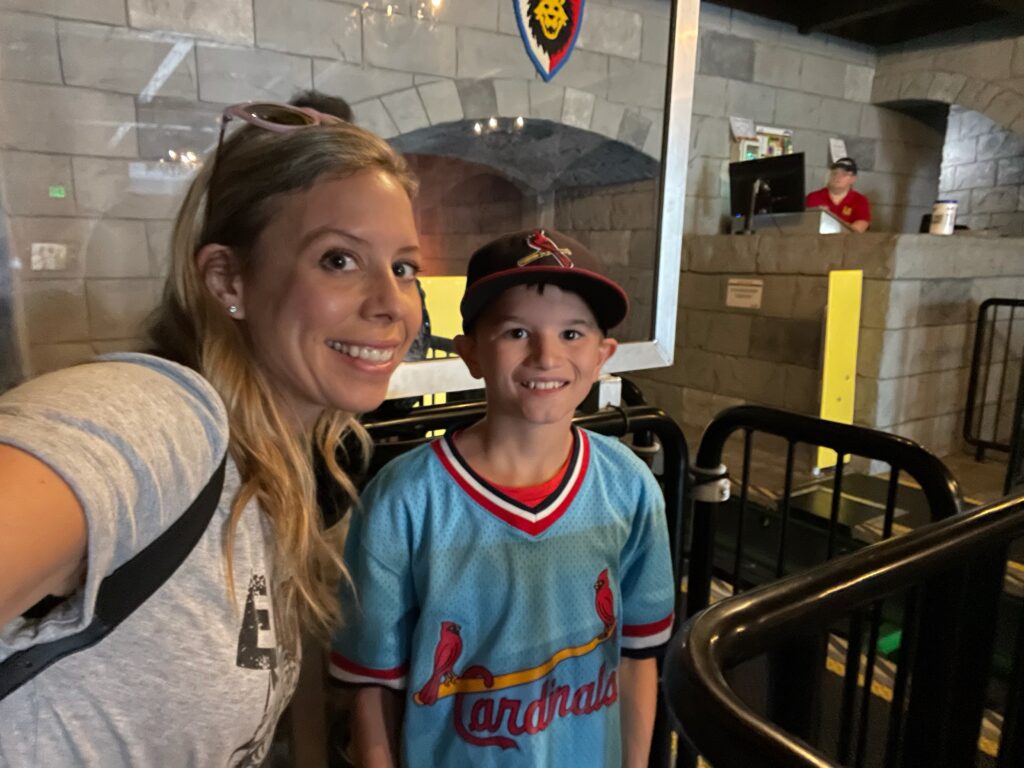I am mom to a child with special needs that you can’t see when you look at him – he is not blind or in a wheelchair, he does not have any distinct physical markings to show that his brain works differently than many of his peers. But he has Attention deficit hyperactivity disorder, ADHD, and Pervasive Developmental Disorder – Not-otherwise Specified, PDD-NOS.
This means he is considered high functioning on the autism spectrum. A few years ago I shared about why I’m glad my son was diagnosed with autism — and he is really thriving, but he still has struggles with academics, social skills, etc. Seeking autism services has helped us a lot, but there have still been some life adjustments we’ve had to make. Here are some other challenges my husband and I face as parents to our amazing boy.

We face invisible struggles too.
The challenges my husband and I face are not always seen by others, so people are often unaware about what goes on behind the scenes.
A couple of months ago, Max was struggling on the bus. He couldn’t stay in his seat and keep the volume of his voice quiet. The loud noises were overstimulating. Plus his ADHD medicine was pretty much worn off by the time he rode the bus home at the end of the day. Many days, Max and his sister would get off the bus, and she would give me a report of the bus happenings. The two sit together because of COVID rules She often said that he was loud, that lots of kids were yelling, Max would squeak his basketball shoes on the bus floor, etc.
One day, Max got off the bus in tears and stormed down our cul-de-sac. I needed to get to the bottom on what had happened on the bus so I could help him manage his feelings. I found out that a boy decided to take it upon himself on the bus ride home that day to make an announcement. “Max is so annoying. Raise your hand if you think Max is annoying.” And apparently several students on the bus did raise their hands. No wonder he was upset.
Max felt attacked. Who wouldn’t have felt that way? I was frustrated and hurt – I don’t want his peers to dislike him and I also hate more than anything to see him being singled out in this way. All every parent wants to do is protect their child. I know Max is special and kind – because he really is. I want other kids to be patient with him, but because kids can’t see his disabilities, their tolerance level is a bit lower for him.
Comparisons are not good, but they’re inevitable.
My son has come so far. SO SO SOOOO far. However, I can’t help but notice my daughter getting invited to parties, and over for play dates constantly. My son often doesn’t get the invite. He notices the vast differences in their social lives. He asks us why she always gets to go to friends’ houses and he doesn’t. This is tough for Max and it’s tough for us as his parents to see too.
Another primetime for comparisons is really any time we are with neurotypical peers: the park, the pool, a Little League baseball game. This is when Max’s strengths and stuggles are on full display. It’s a front row show to where we are developmentally, and often, it’s behind his peers. In so many ways, my son is just the same. We all are people with beating hearts. We have feelings, we love, we grow, we make mistakes. But in some ways, he’s quite different.
It’s okay to be different; of course we love him unconditionally and are eternally proud of him. I worry as he heads to his junior high years where kids are all struggling with self-esteem and where the bubble he’s been living in, his safe place of his elementary school and kids he’s grown up with, is popped. He will soon be thrown into a new school with kids who do not know him and his quirks and what he’s like and his good intentions.
People want to blame our parenting.
There are a lot of things I do not know, but one thing I do is that Max’s behaviors are not due to the way we parent. His brain is just wired differently. No amount of explaining, begging, encouraging or reminding can change some things he does and says. Age and maturity and therapy and (hopefully) our parenting helps. Medication helps. Minimal screen time and as much outside time as possible definitely help Max function as his best self. But our parenting is not to blame for anything that others find challenging about his behavior.
If you are reading this, it’s likely you’re in a similar place that I am. I empathize with you and hope you know that you’re not alone. I hope to encourage you.
If you do not have a child with any special needs, please take what I’ve said and consider talking to your children. Give them a reminder that even though they may not be fond of a classmate, or think the classmate acts “weird” or “annoying” or is awkward, he or she does still have feelings and may have an invisible disability that is playing into those eccentric mannerisms/behavior. It isn’t always easy, but it is so important to figure out how to talk to your child about disabilities and inclusion.
As Max says, “I have ADHD and autism, that’s the way I act the way I do sometimes. I am who I am and I’m doing my best.”

Tags:








